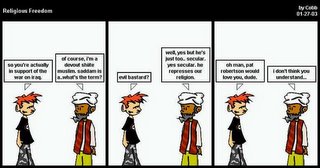
"God Awaits a Response of Love"
Dear Brothers and Sisters!
In this time of Advent, the ecclesial community is invited, while it prepares to celebrate the great mystery of the Incarnation, to rediscover and deepen its personal relationship with God. The Latin word "adventus" refers to the coming of Christ and highlights God's movement toward humanity, to which each one is called to respond with openness, expectation, search and adherence. And just as God is sovereignly free when he reveals and gives himself, as he is moved only by love, so the human person is free in giving him his assent, although it is something that is due: God awaits a response of love. In these days, the liturgy presents the Virgin Mary - whom we will contemplate next Thursday, Dec. 8, in the mystery of the Immaculate Conception -- as the perfect model of this response.
The Virgin listens, ready at all times to fulfill the will of the Lord, and is an example for the believer who lives searching for God. To this topic, as well as to the relationship between truth and freedom, the Second Vatican Council dedicated a careful reflection. In particular, the conciliar Fathers approved, exactly 40 years ago, a declaration on the question of religious freedom, namely, the right of persons and communities to be able to seek the truth and profess their faith freely. The first words that make up the title of this document are "dignitatis humanae": Religious freedom stems from the singular dignity of man who, among all the creatures of this earth, is the only one able to establish a free and conscious relationship with his creator.
"It is in accordance with their dignity as persons -- that is, beings endowed with reason and free will and therefore privileged to bear personal responsibility -- that all men should be at once impelled by nature and also bound by a moral obligation to seek the truth, especially religious truth," said the council.
Thus the Second Vatican Council reaffirms the traditional Catholic doctrine, according to which, man, in so far as spiritual creature, can know the truth and, therefore, has the duty and right to seek it (cf. Ibid., 3). With this foundation, the council insists extensively on religious freedom, which must be guaranteed both to individuals as well as to communities, in respect of the legitimate exigencies of public order. And this conciliar teaching, after 40 years, continues to be very timely. In fact, religious freedom is far from being ensured everywhere: In some cases it is denied for religious or ideological motives; in others, even though recognized in written form, it is hindered in practice by the political power or, in a more insidious way by the cultural prevalence of agnosticism and relativism.
Let us pray that every human being will be able to realize the religious vocation he bears inscribed in his being. May Mary help us to recognize in the face of the child of Bethlehem, conceived in her virginal womb, the divine Redeemer, who came into the world to reveal to us the authentic face of God.
No comments:
Post a Comment